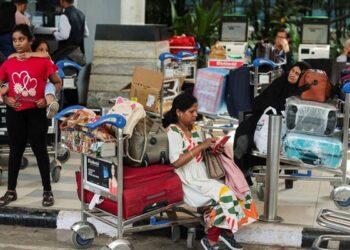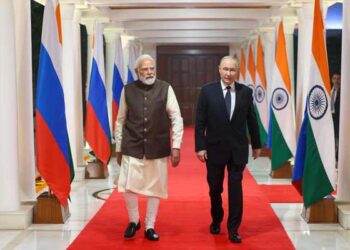Select Language:
- The Canadian Prime Minister and Modi agree to restore senior diplomats.
- Former Prime Minister Trudeau accused India of being involved in the Sikh separatist’s murder.
- A report indicates that transnational repression “influences India’s actions.”
According to a report released Wednesday, India has been identified as a source of foreign interference, as Canada’s intelligence agency stated that it plays a role in national security matters. This announcement came right after a summit in Canada where the leaders of India and Canada pledged to enhance their diplomatic relationship.
At the G7 summit in Alberta on Tuesday, Canadian Prime Minister Mark Carney and Indian Prime Minister Narendra Modi described their discussions as constructive, agreeing to reinstate the diplomats both sides had previously recalled.
Carney faced backlash from parts of the Sikh community in Canada for inviting Modi to the G7 gathering.
Relations between Canada and India have become strained since former Prime Minister Justin Trudeau accused the Indian government of being connected to the June 18, 2023 assassination of Hardeep Singh Nijjar, a Sikh separatist leader residing in Canada.
In response, Modi’s administration has denied any involvement in Nijjar’s death and accused Canada of providing refuge to Sikh separatists.
The intelligence report highlighted that transnational repression is a significant factor in India’s activities in Canada, while noting that the foremost counter-intelligence risk to Canada comes from China, followed by Russia, Iran, and Pakistan.
In October, the Royal Canadian Mounted Police reported having communicated over a dozen threats targeting Sikhs advocating for an independent homeland from India.
The report from the Canadian Security Intelligence Service stated, “Indian officials, including their local proxies, engage in various activities aimed at influencing Canadian communities and political figures. These activities seek to align Canada’s perspectives with India’s interests on critical issues, especially regarding the Indian government’s stance toward supporters of an independent Khalistan.”
The Indian High Commission and the Chinese embassy in Canada have not yet responded to requests for comments.






